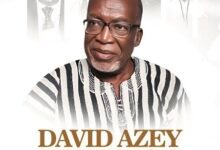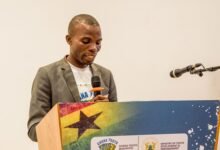The role of non-political leaders in the development of Ghana

Growing up in what I can confidently assert as the most cosmopolitan society in the world—the Zongo communities—I gleaned invaluable insights from home, the “Makaranta” school system, and the community.
It was understood that mallams, imams, pastors, religious leaders in general, and traditional leaders were not to delve into government affairs, and even more perilously, politics.
In Zongos, it is considered taboo for our imams and pastors to engage in any political discourse, be it in public or at home. Until recently, the profession of politics and legal were deemed malevolent, and those who made it their livelihood would face consequences in the afterlife.
During the early days of politics in Ghana, Sheikh Imam Alhaji Abdul Rahim Abbas, the son of the then Chief Imam of Greater Accra, Imam Mohammed Abbas aka Mazawaje (1930s to 1960) joined Osagyefo Dr Kwame Nkrumah, first President of the Republic, at the displeasure of his family.
And in the early 1990s, the sentiment about legal profession was evident when, among the hardworking and brilliant youth in Fadama, only one person at the tertiary level chose the path of law—Lawyer Mubarak Abbas, my uncle and the son of the late Greater Accra regional Chief Imam, Imam Alhaji Mukhtar Abbas who succeeded his father Imam Mohammed Abbas from 1966 to 1993.
Contrary to the prevalent belief, Islam doesn’t discourage leaders from demanding accountability and responsibility from political leaders. Instead, it prohibits religious and traditional leaders from endorsing bad governance and leadership by remaining silent and becoming accomplices to political leaders. Thus, if religious and traditional leaders choose silence and inaction against bad governance, Islam considers them complicit in the system.
I refer to the recent call by our Right Honourable Speaker of Parliament, Alban Sumana Bagbin, urging religious and traditional leaders to speak about politics.
This call is timely, especially as 21 organisations in the Zongos have formed an alliance called the “Muslims Stakeholders Forum for the Empowerment and Development of the Zongo Youth”. Their objective is to champion the agenda of Zongo Youth and their development through entrepreneurship and vocational skills.
During our first meeting, we decided to encourage non-partisan leaders to speak about good governance, emphasizing accountability and transparency during the election season. Unfortunately, most leaders we approached deemed it too dangerous, considering it a political act.
The 1992 constitution doesn’t prohibit religious and traditional leaders from discussing politics but restrains them from publicly declaring support for a political party or candidate. I believe there should be conscious efforts to enlighten them about their boundaries and responsibilities.
The Nation Ghana is a secular State but religion and tradition play significant roles in our lives and State affairs. Consider the preamble of the 1992 Constitution which starts with “in the name of God”.
I’ve always maintained that the youth of every society look up to the actions and statements of their parents and leaders as they mature.
If society’s leaders including parents and guardians understand the power emanating from the people and are equipped with the skills to empower and influence their subjects positively, the true essence of leadership becomes apparent.
The subjects of our non-partisan leaders are the same electorate who queue on election day to select political leaders managing state resources for the next four years. It would make sense if these electorates were empowered to discern and make informed decisions.
However, the congenial atmosphere that once allowed non-political leaders to comfortably speak about good governance has been marred by politicians.
The current climate, where non-political leaders fear being labeled anti-government or enemies of a particular political party, benefits politicians as they dictate political discussions without objective criticism.
Imagine a chief, imam or pastor preaching against the philosophy, campaign message, or policy of any of the two main parties in Ghana to enlighten and educate the congregation for informed decision-making. The next moment, the aggrieved political party would launch full-scale attacks on that leader, disregarding their right and responsibility to educate the community.
Leaders, whether political or non-political, should be free to express their opinions on political party policies, and political parties must accept dissent. If a leader believes a policy won’t favor their community, they should be allowed to inform their people of their stance.
Prophet Muhammed (SAW) said “All of you are trustees and each is responsible for those entrusted to his care. (Bukhari and Muslim). “Any superior who misrules his followers shall go to Hell”, Bukhari.
Since 1992, the conduct of national elections in Ghana has become the norm with heightened tension anytime election is around the corner. Many observers have attributed this to lack of good governance, transparency and accountability and massive show of corruption with impunity. These have characterized our elections and in some way threatening our democratic credentials and achievements.
We are aware that politicians and their financiers often visit Zongos during elections to recruit people who will serve their interests, regardless of the cost and consequences. “The devil finds job for the idle man” and the youth who has nothing doing would fall prey to any political financier who comes with heavy envelope or juicy promise.
Insha Allah, we intend to hold workshops and seminars to educate:
1. The Zongo Youth on the dangers of electoral violence and the future consequences of selling votes to the highest bidder.
2. Religious and Traditional Leaders on their roles, responsibilities, good governance, and how to hold political leaders accountable without exceeding their non-partisan boundaries.
The writer is a member of the National Peace Council of Ghana (NPC), GA region.
Executive Secretary of the Tijjaniya Muslims Movement of Ghana (TMMG).
Convener of the “Muslims Stakeholders Forum for the Empowerment and Development of the Zongo Youth” muslimstakeholdersforum@gmail.com
BY ALHAJI KHUZAIMA MOHAMMED OSMAN




